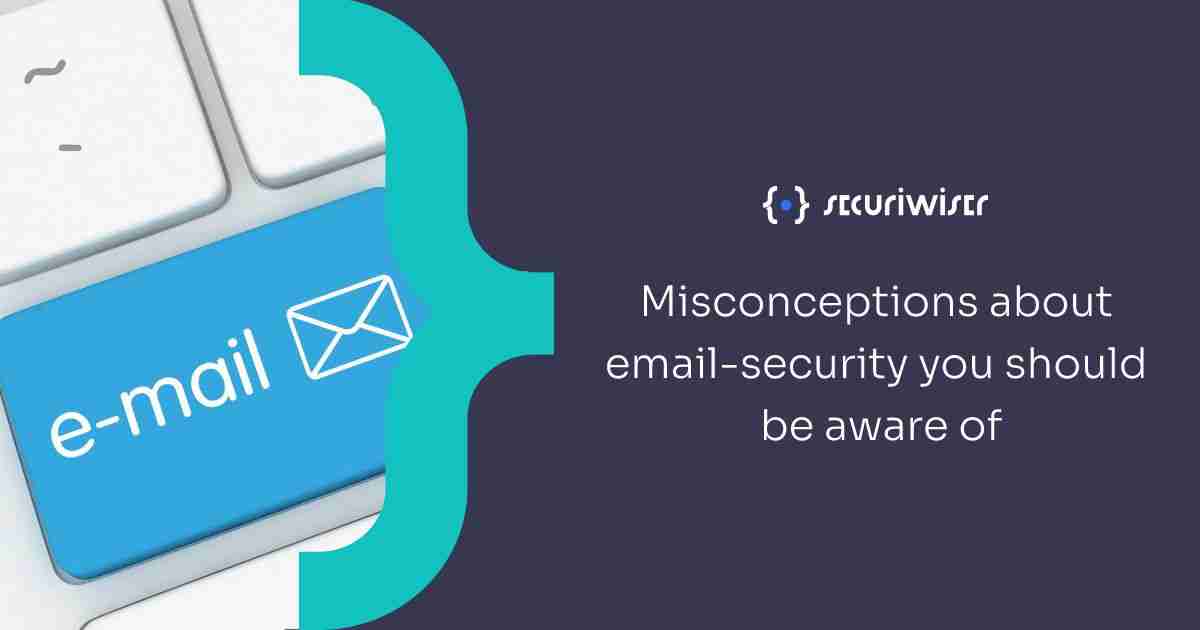Misconceptions about email-security you should be aware of
Blog / Misconceptions about email-security you should be aware of
3 MIN READ

As workforces have adapted to working from home, it is now more important than ever for organisations to provide their staff cybersecurity awareness training and to invest in their email security. COVID-19 has significantly changed the way we work as more and more businesses continue to transfer to the digital space. While certain benefits have arisen from this such as increased work productivity, the rush involved with shifting online certainly comes with certain risks. One of these risks is poor email security.
Increased risks as a result of remote working
Almost every cyber-attack relies on human error. Many employees who work from home have been found to practice lax cybersecurity habits. Research conducted by ‘intelligent CISCO’ in 2021 has showed that 63% of remote workers used their personal devices to access corporate network and that 49% of remote employees have opened email attachments from unknown sources. In addition to this, it was found that remote employees clicked on malicious emails three times the amount they have before COVID-19.
These relaxed approaches to cyber security have contributed to the sharp increase of successful cyber attacks being levied upon organisation’s networks, resulting in large scale financial and reputational consequences. Email remains the first beginning point of cybersecurity issues as in most cases, an attack is conducted upon an organisation as soon as the malicious link embedded in the email is clicked on. In addition to this, hackers have become more refined in their approach to cyber attacks as 30% of IT leaders have admitted that these malicious emails imitate internal sources. Determining the falseness of the email source has also become more difficult as many colleagues have not seen or heard from each other on a regular basis.
The most recent research conducted by Mimecast found that 54% of IT directors regarded the cyber-attacks during the first year of COVID-19 as more sophisticated. This, in combination with increased remote working has further challenged IT teams to secure email. With ransomware becoming a more persistent threat, email security is something that businesses must focus on to ensure security.
Email platforms alone do not maintain security
Email remains the most popular method for deploying cyber-attacks, making it crucial for organisations to focus on keeping email security up to speed. A common misconceptions businesses hold is the belief that email platforms provide protection against all forms of email-based attacks. However, this isn’t the case.
More than half of all IT directors reported that their email platform in use did not provide important security functions and that only 45% provided spam filtering and only 42% provided malware protection. 64% respondents reported that their organisation lacked protection capabilities against Business Email Compromise, with 56% respondents stating that their email platform did not provide protection against emails containing ransomware or phishing links.
From these statistics, it is clear that many businesses are relying on email platforms for security despite the inefficiency of this approach. Furthermore, the use of email platforms across almost every business makes this attractive to hackers looking to exploit businesses for their own financial gains.
Adopting a holistic strategy
To handle increasing threats organisations face, a holistic approach should be taken to address all threats simultaneously, starting with external emails sent from outside networks to how information is shared internally among staff. It is not just technology that is important. Staff need to be provided with cybersecurity awareness training to aid them in becoming better at identifying potential threats.
Providing cybersecurity awareness training prevents employees from making errors that could lead to a system breach which in turn, reduces the need for organisations to invest further for remediation costs. Taking a holistic approach to cybersecurity combines both defence and intelligence from multiple security layers encompassing hardware, software, users, processes and partners to help organisations handle loss of visibility regarding internal and outbound email threats. This provides organisations a more direct, clear way for detecting threats and preventing them from being successful and, to increase awareness as a future prevention tactic.
About Securiwiser
We aim to provide our clients advice concerning implementation of various specific cyber security methods, some of which will be more suitable than others depending on the business type to help ensure the cyber health of our client’s system.
We advise our clients (whether they are individual users or business owners) regarding various cyber threats that their businesses and operating systems may face. This includes increasing trends of certain threats and prevention methods that are cost effective and time saving.
Furthermore, business owners, employees and general users may forget to conduct regular scans to monitor the health of their operating system, which criminals can take advantage of to gain unauthorised access by exploiting unrecognised, underlying vulnerabilities.
Securiwiser can conduct regular scans for your system and provide a detailed cybersecurity risk assessment and a cybersecurity vulnerability assessment. We can further explain detected vulnerabilities and risks in detail to our clients and provide the best course of action that will save your business time and money.
Previous Article
Vulnerabilities In Machine LearningHow secure is
your business?
Blog categories
How secure is
your business?